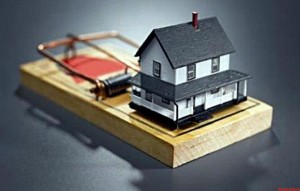 As befits a market economy, real estate prices and demand for it in Russia have been growing rather steadily for the last 25 years. There have been periods of decrease in prices and demand from 1998 to 1999 and from 2008 to 2009 which, again as the free market dictates, came as a result of economic crises. The development of Moscow’s real estate market has been particularly dynamic: to the extent that the capital of a country that is hardly the world’s richest became the most expensive city in the world to live in.
As befits a market economy, real estate prices and demand for it in Russia have been growing rather steadily for the last 25 years. There have been periods of decrease in prices and demand from 1998 to 1999 and from 2008 to 2009 which, again as the free market dictates, came as a result of economic crises. The development of Moscow’s real estate market has been particularly dynamic: to the extent that the capital of a country that is hardly the world’s richest became the most expensive city in the world to live in.
Russia’s current economic crisis that came in 2014 as the result of Western sanctions introduced in response to Russia’s invasion of Ukraine, along with the ruble’s twofold slide (which was in turn provoked by low prices on oil–the country’s main source of revenues) and the population’s pessimistic expectations, has had an impact of the real estate market. The long-forgotten prices of less than US$1 million for properties on the Rublyovka, the capital’s hottest suburb traditionally occupied by Soviet and Russian nomenklatura members and their close circle made up of the country’s richest businessmen and their families, have become a nightmare come true for realtors and their agents. However, try as they might, realtors cannot find buyers for Russia’s luxury real estate even for the aforementioned price that would be considered quite appropriate in wealthy suburban settlements of other world capitals.
Today’s economic crisis has opened many people’s eyes to the reality the country is facing and to its economy’s obvious lack of prospects under the current political regime. The Russian population’s main goal today is to preserve what they have in terms of housing. There is no question of mortgages anymore. The ruble’s landslide tumble made hard currency-denominated credits an intolerable burden for the majority of borrowers. The practice of investing in residential real estate units or office buildings with the purpose of later leasing them out that had become quite popular in the past does not pay well anymore. Commercial real estate sector was the first one to react to the crisis. The abandoned stores along Tverskaya Street, Moscow’s main shopping avenue, have already become topic for discussion in June 2014. Last winter, residential real estate followed, by turning into a market where prices dictated by a leaser. The rentier lifestyle that had become so familiar for many native Muscovites has undergone significant changes as the ruble’s value fell–it is no longer possible to live comfortably on the warm Mediterranean coast by renting out a one-bedroom apartment in Moscow.
Sale prices for residential real estate are holding up stubbornly, as not many people are prepared to lower them as a result of the halving of the value of the Russian currency. At one point, in late 2014–early 2015, the ruble prices for real estate have actually risen along with the value of the US dollar, but this has not lasted long–there are still no buyers. This tendency of falling prices is evident even in the absence of a trustworthy monitoring mechanism: the law does not require the buyer or the seller to disclose the transaction value, except to the tax and cadastral authorities. As for the price of the house or apartment indicated in the contract, it is, in most cases, significantly marked down from the real price, with the aim of avoiding income tax: in Russia, paying taxes in as much as prescribed by law is considered a folly and the lot of law-abiding foreigners.
No one today can predict how long the crisis and the accompanying fall in Russian real estate values will last, but  there is now an understanding that real estate prices will not bounce back as easily and quickly as they did in the previous decades. Few people are eager to invest in a house or an apartment when every new speech by the Russian president is full of an ever more ominous war rhetoric, and when even weather forecasters talk about the conditions for bombing. Notably, President Putin’s own associates prefer to buy real estate in the European Union, and the president himself, according to Britain’s The Times newspaper, has invested in real estate in Spain, not in the newly conquered Crimea.
there is now an understanding that real estate prices will not bounce back as easily and quickly as they did in the previous decades. Few people are eager to invest in a house or an apartment when every new speech by the Russian president is full of an ever more ominous war rhetoric, and when even weather forecasters talk about the conditions for bombing. Notably, President Putin’s own associates prefer to buy real estate in the European Union, and the president himself, according to Britain’s The Times newspaper, has invested in real estate in Spain, not in the newly conquered Crimea.
Time will show when and how the Russian real estate market begins growing again. It is evident that this will not happen before the Kremlin changes its course from a crazy to an adequate one. As for when the latter happens, it is a rhetorical question.





